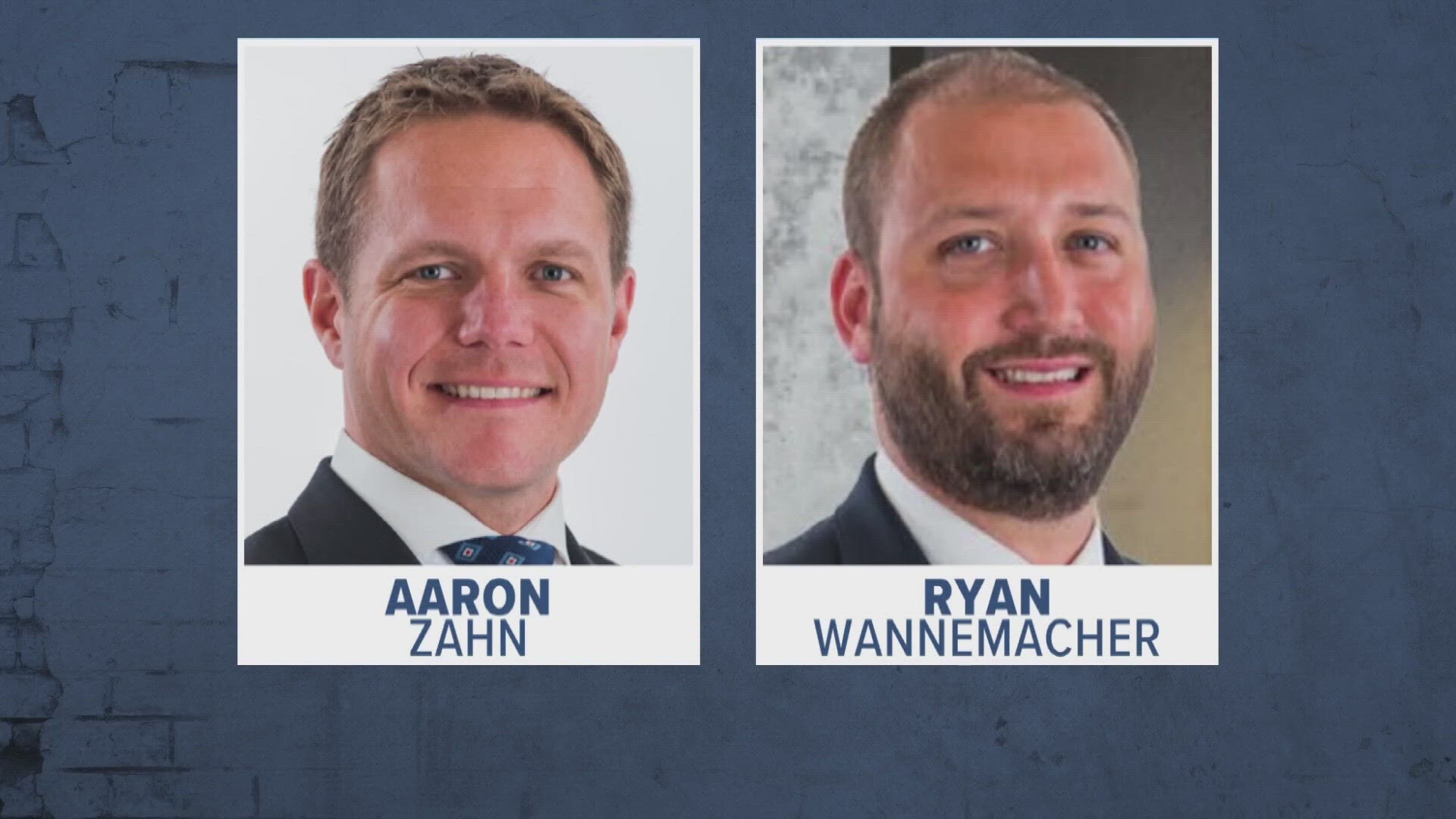JACKSONVILLE, Fla. — As the fourth week of the trial of ex-JEA CEO Aaron Zahn and ex-JEA CFO Ryan Wannemacher began, Zahn's legal team delivered on arguments it has been slowly building since day one.
Zahn and Wannemacher are accused of masterminding a bonus plan, crafted largely in the dark, which prosecutors say could have made them millions apiece. They were ensnared by a memo penned by then-City Auditor Kyle Billy, which contained a table showing possible payouts if the two succeeded in a privatization and sale of JEA, which would pour money in the bonus plan. The sale never happened, and the plan was never implemented, but Zahn and Wannemacher are charged with conspiring to create it and skim millions off the back of JEA.
The prosecution rested its case Monday morning, and after lunch, the defense brought forward who they have now revealed will be their only witness. Earnest Dickson, a certified public accountant who testified he did more than $187,000 worth of contracted work for JEA, walked the jury through his own calculations of what those payouts would be, taking aim at Billy's calculations and arguing that the payout would actually be much lower.
The bonus plan, called a performance unit plan, would allow employees to buy shares of the company; JEA officials throughout the trial have compared it to a stock option plan, but for a public company. Employees could buy the units for $10 apiece, and depending on if JEA brought in money above a certain threshold or not, they could gain money, lose money or get their money back.
The higher an employee's position within JEA, the more performance units they could purchase. Prosecutors argue that with an influx of money from selling JEA, which was a goal of Zahn and Wannemacher, the value of these units could drastically increase from $10 to as much as $11,000 and create a massive windfall for higher level executives.
Expert tells jury city auditor's math was 'flawed'
Dickson based his math before the jury off the assumption that JEA took a bid from NextEra, the parent company of Florida Power & Light, which was offering $11,005,000 to purchase the utility. He said the city auditor's report didn't account for several costs that would need to be taken off that sale price to determine how much money the city would actually receive.
One element the defense honed in on was the debt that JEA owed for an investment into nuclear power. JEA entered into an agreement with a Georgia nuclear plant called Plant Vogtle more than fifteen years ago. As construction stalled, costs piled up. The defense has asked nearly every witness with knowledge of JEA's investments about Plant Vogtle, inquiring if they believed the money owed was significant or if it was a bemoaned topic at JEA. Their fixation on Vogtle came to fruition Monday; by the time the jury watched Dickson's calculations, they had heard about the issue for in detail for three weeks.
When deducting this and other costs from the $11,005,000, Dickson came up with a total of $3,347,000,000.
Dickson mimicked the city auditor's calculations, which he qualified he believes are "flawed," "mis-states the PUP agreement," and "slants the perspective of what would actually occur," to come up with his own estimation of the value of the performance units in the event of a sale.
He came up with a price of $1,050 each, nearly eleven times less than prosecutors say the units could have valued.
After Dickson gave this calculation, Zahn's attorney Brian Albritton said he had no further questions. Albritton told press he believed that this moment would be very important.
This math contradicts statements made by Zahn himself in 2020. He told city attorneys -- in statements that aren't admissible in federal court -- that he could "do the math" and he agreed that the value of performance units could increase to be worth $3,000.
Federal prosecutors will get the chance to question Dickson themselves Tuesday morning. They will also get a chance to call rebuttal witnesses at the end of the defense case.
Motion for acquittal
Earlier in the day, attorneys for both Zahn and Wannemacher petitioned Judge Brian Davis to acquit the two former executives of their charges of conspiracy and wire fraud.
The arguments presented would make a “fine closing argument,” Federal Prosecutor Tysen Duva said, after attorneys asked Davis to drop the case, arguing that the prosecution has failed to present any sufficient evidence and that even the semantics of the indictment against Zahn and Wannemacher are inaccurate. But Duva did not believe that their argument was sufficient to have the case dismissed.
After a lengthy presentation by both sides, Davis said he is taking the motion under consideration in order to read the case law submitted by the attorneys. Regardless, arguments by the defense attorney did provide a preview of what they plan to argue at the close of the case, should it go on. Even if Davis doesn’t grant the motion for acquittal — likely the result, because judges look at the evidence in the “light most favorable to the government” when evaluating such requests — the jury will likely hear the same arguments, and reckon with the doubts it may cast during their deliberations.
Despite Davis's commitment to looking into the matter further, court proceedings were planned for the rest of the week: Cross examination of Dickson will start the day Tuesday, Wannemacher's team then plans to present video evidence to the jury, and the federal government will then begin their rebuttal.
Closing arguments are expected Wednesday.

